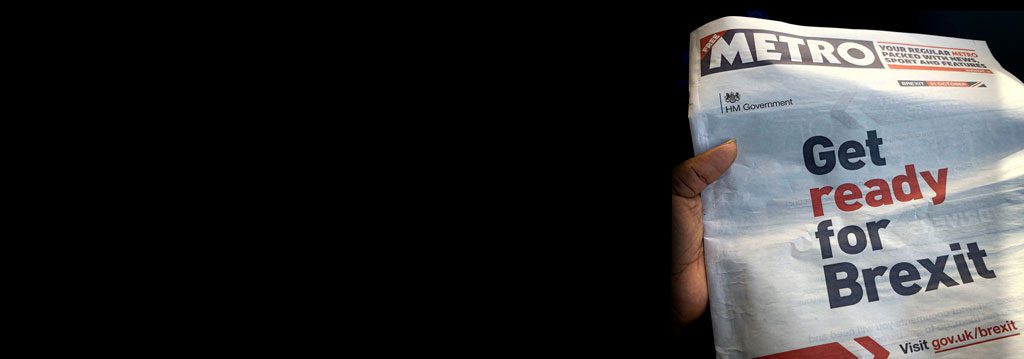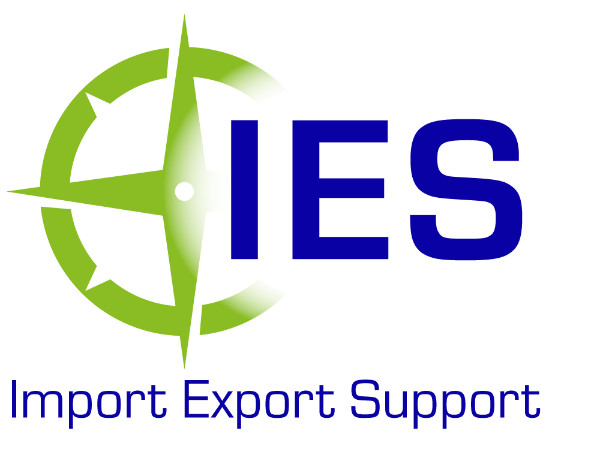Update on the Brexit transition phase for importers and exporters

I regularly speak to importers and exporters in our region about the issues we’re all facing as Britain moves through the Brexit transition phase. Here is the IES update on the areas I think are important for fellow professionals in the sector.
Know your borders
It is vital companies know the customs status and customs origin of your goods when they cross a border as this influences the type and cost of your import or export.
Currently as the UK is still a member of the European Customs Union shipments are only classed as exports when they are being sent to a country that isn’t one of the other 27 EU member states. This is because it is only when the goods leave the EU to a rest of world (ROW) destination that they cross a ‘Customs Border’.
All movements of goods through customs borders requires the submission of customs declarations and possible payment of taxes as they cross the border.
There are currently 28 member states in the EU. Any movement of goods from the UK to one of the other 27 states is classed as an intra EU movement. Note that, as Turkey isn’t a full member of the EU, exports to Turkey require a customs declaration along with an additional document called an Admission Temporaire Roulette (A.TR), needed to support the non-payment of tax.
Understanding origin
One of the biggest issues I encounter for my clients is when they are exporting to countries who have free trade agreements with the EU. They are frequently asked to provide with a long term declaration of Preferential Origin or an EUR1 document.
The issue is that there are two types of origin, Preferential & Non-preferential origin. Non-preferential origin is defined as ‘nationality’ product i.e. where the products is made. Whereas Preferential Origin allows for products that aren’t grown or wholly sourced in the country of supply, comes from establishing whether the product has undergone sufficient processing for it to meet the Origin rules set out in trade agreements between the country of supply and the final destination of the finished goods. The trade agreements which are all different clearly lay out on a product by product basis how much ‘originating components’ must be used in the manufacture of the finished product for it to change origin.
For example: a UK company ‘Widgets are Us’ designs WidgetA made from components sourced from multiple suppliers all over the world which they assemble into WidgetA in their UK warehouse. When they sell WidgetA they can label affix a ‘Made in the UK’ label. However, if they want to sell WidgetA to a country like South Korea, and benefit from the trade agreement in place between the EU & South Korea allowing goods with an EU origin to be imported into South Korea duty free, they will have to perform a calculation to ascertain whether WidgetA has undergone sufficient processing giving it a customs preferential origin of the EU other wise duty will need to be paid when it’s imported into South Korea.
Customs status
The customs status of your goods depends on whether or not import duty and VAT has been paid on the products when they entered the EU/UK. Also, whether you received a reduction under a free trade agreement between the country of supply and the EU.
Other important information exporters must know includes your trading terms with customers, i.e. who will be the importer or exporter of record, and who is liable for transportation costs, duty and VAT. This is vital as there are stringent rules that must be met when zero rating invoices on exports, as the exporter of record is liable for VAT on non-compliant exports.
The accepted trading terms are known as Incoterms® which the ICC have revised and relaunched for 2020. Incoterms guide how the risks and costs associated with international trade should be split between the vendor and customer. They also outline who will be the exporter of record, and who is responsible for and who pays for transportation, insurance and taxes.
Brexit proposals
After the Brexit transition period ends, our borders will shrink from the entire EU to just the UK and Northern Ireland. Currently the UK Government proposes, following the transition period, that companies will apply EU tariffs on import and if goods are released to the UK and there is a duty differential they can submit an adjustment to account for any duty over or underpayment.
There is also a suggestion that for intra EU movements, companies will be required to submit a document similar to the A.TR which they propose calling A.UK/NI.
All of this detail has yet to be agreed.
We can expect further developments during the transition phase, we will endeavour to keep you updated. As always, please call or email me with comments or questions, we’re always happy to discuss individual issues.

